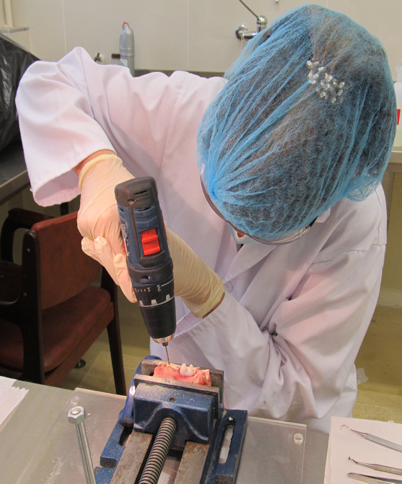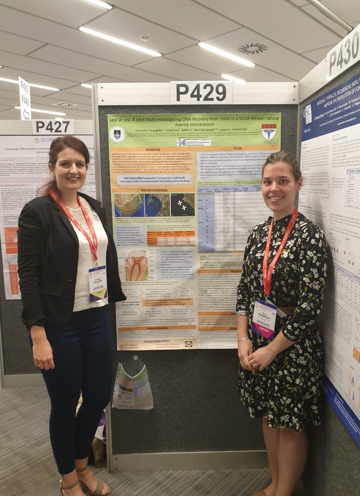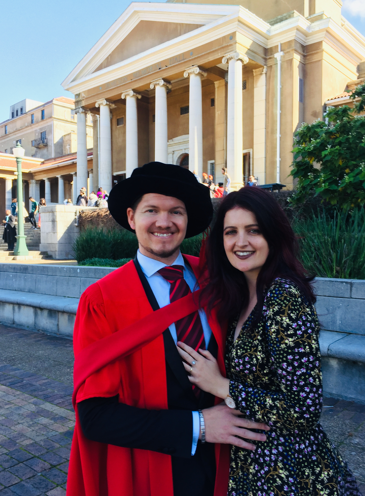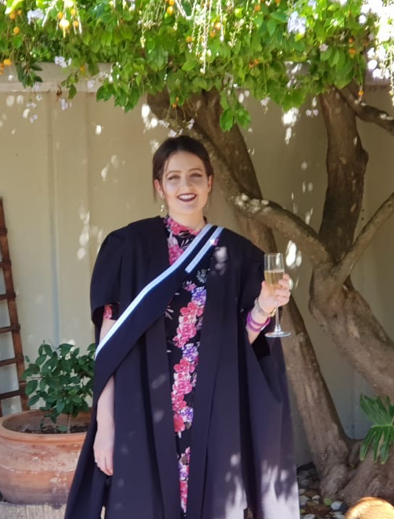Starting my MSc journey at Cranfield Forensic Institute
26/10/2020
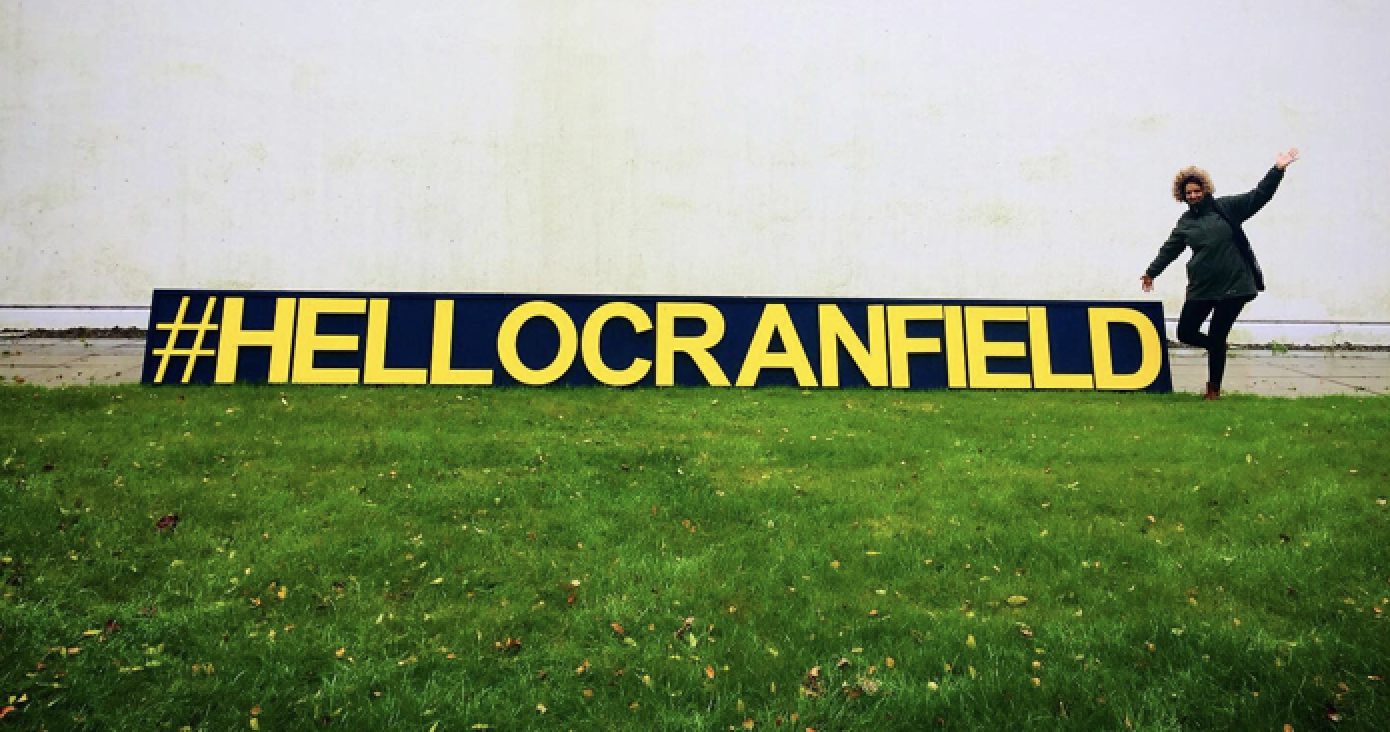
Whether you are 18 or 28 leaving home is never easy. Exiting one’s comfort zone and leaving the people you love is challenging no matter what your age. Doing this in a global pandemic, with even more uncertainty added to the mix, was quite the stress inducing experience. Thankfully, I had plenty experience of leaving home before I started my journey at Cranfield University. I left my home country of South Africa, with my family, to move to Qatar in 2003. I then did the move back to South Africa in 2012, this time on my own, to start my university career at the University of Cape Town. The next big move came in 2019, when again I left my home country to come to the UK with my husband. So when it came to packing up my things and leaving the home my husband and I had made in Canterbury (he works at the University of Kent) I was ready for all the emotions of starting a new adventure. And how excited I am for this adventure!
So let’s back track and put some context as to how I came to Cranfield University. The obvious one is: what degree have I come to do? Well, I have come to do an MSc in Forensic Investigation. “Ooohh forensics!”, you might think. Yes, forensic investigation is an overwhelmingly attractive degree title (if I say so myself). Many like the sound of it because of what they have seen on forensic based TV shows, and boy, has TV capitalised on the attraction of forensics! Well, I am probably one of the few people that did not choose forensics because of what I had seen on TV, or read in books. I like to think forensics choose me.
My journey into the field of forensics started during my undergraduate degree at the University of Cape Town where I was introduced to forensic anthropology. For the sake of those who may not know what this is, think of the TV show Bones (I often use this reference). And if that is not enough information, well, forensic anthropologists are trained in the human skeleton and all the wonderful things our bones can tell us about you. And of course, because it is forensic anthropology, it is the application of this knowledge to a legal context. For example, let’s say you are on your Sunday walk in the countryside and you stumble on some bones. Hopefully the first thing you will do is call the police. Once the police arrive and have secured and assessed the scene, they will have two main questions that would need answering. Firstly, are these bones human? And if yes, then who might they belong to? And this is where the forensic anthropologist will assist in the investigation, as they will know human versus animal bone, and be able to give an estimation of sex, age, stature, and ancestry. All helpful to an investigation.
I will not say I was instantly hooked by forensics after my initial introduction in my undergraduate degree, but I knew I enjoyed anatomy and medicine. Therefore, after my undergraduate I went to do an honours degree in Applied Anatomy (also at the University of Cape Town). During this year I had to complete a full module in forensic anthropology, and I was afforded the opportunity to observe real case work. That was the hook! In particular, I started to develop a strong feeling and need to assist in the overwhelming issue of unidentified human remains that entered South Africa’s mortuaries (globally, this is also a challenge). Therefore, I continued my studies and completed a Masters in Biomedical Forensic Science. In my masters I sought to combine the fields of forensic anthropology and forensic genetics to improve the success in the identification of unknown human remain cases (think DNA and bones).
In 2019, I had just started a PhD in forensic genetics when my husband was offered a job at the University of Kent (Canterbury) and all my plans went somewhat topsy turvy. After much deliberation, I decided to de-register from my PhD and come to the UK with my husband. Coming to the UK has been a challenge, because even though I hold good qualifications and have good experience, getting a job was difficult.
Then fate intervened! In January 2020, after being in the UK for a few months, Dr Nicholas Marquez-Grant (Forensic Anthropologist and lecturer at Cranfield University) came to give a talk at the University of Kent at the same time I was visiting the campus, thus, I could attend. He spoke about all the work he had been involved in within the UK and abroad dealing with recovery and identification of human remains from many different contexts. I was fascinated, it was exactly what I wanted to do! Subsequently I started doing research on Cranfield University and their forensics programme. I was really impressed with the program and what really motivated me to apply to Cranfield was the investment the forensics program had been given and the new facility they were building. In addition, I really liked the hands on teaching approach the program offered and the connections the university has to industry. Therefore, I decided to give it a go and put my best foot forward and apply.
Thankfully, due to my dual citizenship with the UK, I was able to get home fees, but, this was still a little (and by a little I mean a lot) out of mine and my husband’s financial capability. Fortunately, as a result of the investment the forensic program received, they were able to award 5 scholarships to new incoming students. I applied immediately! And I feel extremely grateful and fortunate to have been awarded one of them since it has made it possible for me to come and do this masters; and enter an environment where I can excel and make valuable connections in the field of forensics within the UK.
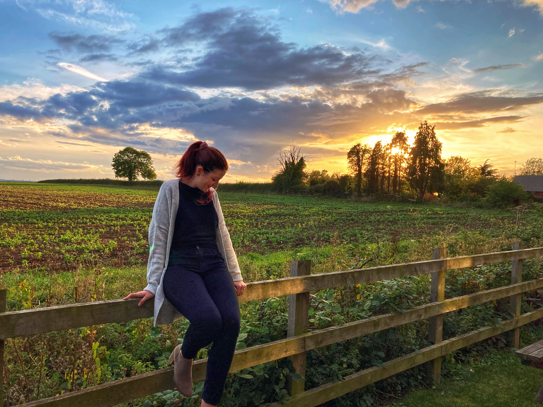
Almost three weeks into beginning my masters, I can say I am just as excited as I was before coming. Meeting everyone on the course (although virtually) has been great and I feel that I am in very good and capable hands. My first module will be in ‘Investigation and Evidence Collection’ that will have a face-to-face crime scene component, which I look forward to. This module, along with three others are compulsory for me, but being on the forensic investigation course I get to choose seven electives, so I can really tailor the degree to my liking – another reason for me applying to do this degree. Overall, I am interested in all the modules I will be doing, in particular, I really look forward to the forensic archaeology modules, as this is something I do not have a lot of experience in and believe this will add greatly to my existing skill set.
Despite it being a global pandemic, I have felt comfortable visiting campus and have enjoyed my cycles to and from the university. Cranfield is a lovely area being surrounding by countryside and I have enjoyed my runs and walks around the village. In particular, I was very happy to see that there was a dedicated cycle path from Cranfield village to the university! So I feel safe traveling to and from the campus when needed. My hope for the upcoming weeks and months is to have more interactions with my fellow classmates and lecturers i.e. meet them in person. It has been a bit weird to not have formally met anyone yet, but everyone I have spoken to and emailed have been very supportive and welcoming.
So here is to the next year at Cranfield University! I am sure it will have its challenges, but nonetheless I am excited to be here and get stuck in. Finally, I plan to give it my all and work to the best of my ability to feel worthy of this wonderful opportunity I have been awarded.
Categories & Tags:
Leave a comment on this post:
You might also like…
From classroom to cockpit: What’s next after Cranfield
The Air Transport Management MSc isn’t just about learning theory — it’s about preparing for a career in the aviation industry. Adit shares his dream job, insights from classmates, and advice for prospective students. ...
Setting up a shared group folder in a reference manager
Many of our students are now busy working on their group projects. One easy way to share references amongst a group is to set up group folders in a reference manager like Mendeley or Zotero. ...
Company codes – CUSIP, SEDOL, ISIN…. What do they mean and how can you use them in our Library resources?
As you use our many finance resources, you will probably notice unique company identifiers which may be codes or symbols. It is worth spending some time getting to know what these are and which resources ...
Supporting careers in defence through specialist education
As a materials engineer by background, I have always been drawn to fields where technical expertise directly shapes real‑world outcomes. Few sectors exemplify this better than defence. Engineering careers in defence sit at the ...
What being a woman in STEM means to me
STEM is both a way of thinking and a practical toolkit. It sharpens reasoning and equips us to turn ideas into solutions with measurable impact. For me, STEM has never been only about acquiring ...
A woman’s experience in environmental science within defence
When I stepped into the gates of the Defence Academy it was the 30th September 2019. I did not know at the time that this would be the beginning of a long journey as ...


